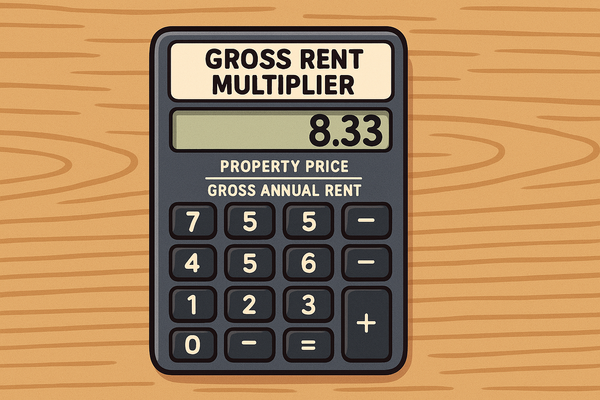Hawaii Squatter's Rights Guide: 2025 Laws, Adverse Possession, and Property Protection 🌴
With real estate values among the highest in the nation and unique property challenges on the islands, Hawaii's approach to unauthorized occupation requires particular vigilance.

For property owners in the Aloha State, understanding squatter's rights laws is essential for protecting your investment. With real estate values among the highest in the nation and unique property challenges on the islands, Hawaii's approach to unauthorized occupation requires particular vigilance.
A squatter is someone who occupies property without the owner's permission and sometimes claims legal ownership. In Hawaii, this issue has gained attention following high-profile cases like the infamous $500,000 home mistakenly built on the wrong plot in Puna that subsequently became overrun with squatters.
For property owners, understanding Hawaii's squatter rights laws is crucial to protect your investment and prevent potential loss through adverse possession claims.
An Absolutely Bizarre Story 🤯: I would automatically assume that a story like this would originate from Florida, rather than Hawaii – no offense, Florida. But, in a breathtaking example of property rights gone wrong, a developer in Hawaii not only built a $500,000 home on the wrong plot of land but then had the audacity to sue the rightful owner for being "unjustly enriched" by their mistake. The abandoned construction later became a squatter haven, showcasing the unexpected vulnerabilities property owners face even in paradise—and a stark reminder that property nightmares can unfold in truly bizarre ways.
Key Takeaways
- Hawaii requires squatters to occupy property continuously for 20 years before they can file an adverse possession claim
- Squatters must pay property taxes during the entire statutory period to establish a valid claim
- House Bill 225 (2025) aims to establish a working group to analyze squatting issues in the state
- Hawaii limits adverse possession claims to properties not exceeding five acres
- Regular property inspections and security measures are the best prevention against squatters
- Hawaii's approach provides stronger protection for property owners than many other states
Understanding Hawaii Squatter Rights in 2025
In Hawaii, squatting itself is not legal, though squatters have historically had certain rights through the doctrine of adverse possession. This legal principle allows individuals who occupy abandoned or neglected property without permission to potentially gain legal ownership after meeting specific conditions over a designated period.
It's important to understand the distinction between squatters and trespassers. While trespassers enter property unlawfully without intent to stay long-term and can be removed immediately by law enforcement, squatters establish residency on the property indefinitely, making their removal significantly more complicated than that of mere trespassers.
The legal status of squatting exists in a gray area. While occupying someone's property without permission is illegal, squatting isn't explicitly categorized as legal or illegal. Under specific circumstances, squatters can gain certain rights through the adverse possession process. Potential consequences for squatting include criminal trespassing charges, civil eviction proceedings, and liability for property damage.
Hawaii Adverse Possession Requirements
For a squatter to claim legal ownership through adverse possession in Hawaii, they must satisfy several stringent requirements known as the "OCEAN" framework:
Open and Notorious
The occupation must be visible and obvious to anyone, including the rightful owner. This prevents hidden or secretive occupation from qualifying for adverse possession. The squatter must live openly as if they were the rightful owner.
Continuous
The squatter must occupy the property continuously for 20 years without interruption. Any temporary abandonment resets the clock on the adverse possession claim. This twenty-year timeframe is significantly longer than many other states require.
Exclusive
The possession must be exclusive, meaning the squatter cannot share the property with others, including the rightful owner. The squatter must have sole control over the property.
Actual
The squatter must physically occupy the property and treat it as their own. This includes maintaining the property, making improvements, or otherwise demonstrating actual possession. Simply claiming the property without physical occupation is insufficient.
Hostile
In legal terms, "hostile" does not imply aggression but rather indicates that the occupation is without the owner's permission and against their rights. This can include situations where the squatter honestly believes they have a right to the property due to a misunderstanding or error.
Beyond these five fundamental requirements, Hawaii law imposes additional conditions:
- The squatter must pay all property taxes for the property during the 20-year period
- They must make improvements to, cultivate, or protect the property
- Hawaii is unique in that it limits adverse possession claims to properties not exceeding five acres
Hawaii House Bill 225: Addressing Squatter Issues
As of early 2025, the Hawaii legislature is considering House Bill 225, which aims to establish a working group to analyze squatting issues in the state and provide recommendations for more effective approaches. The bill recognizes the complexity of squatting situations, particularly when disputes arise about whether occupants are squatters or tenants with legal rights under Hawaii's residential landlord-tenant code.
The bill acknowledges a common problem: when property owners cannot be contacted to make trespass complaints, law enforcement officers cannot remove squatters even when neighbors report public nuisances. This leaves communities without effective legal remedies and hinders enforcement of trespass laws.
While Hawaii hasn't implemented dramatic changes to its squatter's rights laws as some other states have, this legislative effort signals growing recognition of the challenges property owners face when dealing with unauthorized occupants.
How Hawaii's Approach Differs From Other States
Hawaii's approach to squatter rights has evolved to be more property-owner friendly than many states, particularly due to its extended adverse possession timeframe. Here's how Hawaii compares to other states:
Adverse Possession Timeframes
| State | Required Occupation Period | Tax Payment Required |
|---|---|---|
| Hawaii | 20 years | Yes |
| California | 5 years | Yes |
| Florida | 7 years | Yes |
| Texas | 10 years (3 with deed) | Yes |
| Alaska | 7-10 years | No |
| Oregon | 10 years | No |
| New York | 10 years | No |
| New Jersey | 30 years | Yes (5 consecutive years) |
The 20-year requirement in Hawaii provides substantial protection for property owners compared to states like California, where squatters can potentially claim ownership after just 5 years of occupation. This extended timeframe reflects Hawaii's distinctive approach to property rights.
Legislative Trends
Following the lead of states like New York, Georgia, Florida, and Alabama, which have recently enacted legislation making it easier for property owners to remove squatters by explicitly excluding them from tenant protections, Hawaii's consideration of HB 225 suggests a potential shift toward strengthening property owners' rights against squatters.
How to Prevent Squatters in Hawaii Properties
Prevention remains the most effective strategy for property owners. Here are key preventive measures to protect your property from squatters:
Regular Property Inspections
- Visit vacant properties regularly or hire a property management company to conduct routine inspections
- Document the condition of the property with dated photographs
- Maintain landscaping and exterior appearance to show active ownership
Security Systems and Monitoring
- Install visible security cameras and alarm systems
- Consider smart home security that provides remote monitoring capabilities
- Use motion-activated lighting around the property perimeter
- Install sturdy locks, security doors, and window reinforcements
Property Maintenance
- Keep utilities active but on minimum service levels for vacant properties
- Maintain landscaping and exterior appearance
- Collect mail regularly or have it forwarded
- Schedule timed interior lighting to create the appearance of occupation
Documentation and Signage
- Post "No Trespassing" signs prominently on the property
- Maintain comprehensive documentation of ownership
- Ensure property is properly registered with the county
- Maintain records of all property taxes paid and improvements made
Community Involvement
- Inform neighbors about vacant properties and ask them to report suspicious activity
- Join neighborhood watch programs
- Consider hiring a house-sitting service for extended absences
Professional Management
- Retain a property management company for vacant properties
- Consider short-term rentals if appropriate for your property
- Ensure quick tenant placement to minimize vacancy periods
These preventive measures not only deter potential squatters but also help establish a clear record of active ownership that can prove invaluable if adverse possession claims arise.
Legal Process for Removing Squatters in Hawaii
If prevention fails and you discover squatters occupying your property, Hawaii's legal process for removal involves several steps:
The Hawaii Eviction Process for Squatters
- Issue a Written Trespass Notice: Provide formal written notice demanding that the squatter vacate the premises immediately. Send this notice via certified mail and post a visible copy on the property.
- File an Eviction Lawsuit: If the squatter doesn't vacate after proper notice, file a complaint of forcible detainer with the Hawaii District Court. This involves submitting documentation to the court and scheduling a hearing.
- Attend Court Hearing: Present evidence of your legal ownership and the squatter's unauthorized occupation. Bring property deeds, tax records, and any documentation of the squatter's lack of permission to be on the property.
- Obtain a Writ of Possession: If the ruling is in your favor, the court will issue a writ of possession authorizing the sheriff to remove the squatter, typically within 5 days of the order.
- Sheriff Enforcement: Only the sheriff, not local police, has jurisdiction to remove squatters. Once the sheriff receives the writ of possession, they will visit the property and physically remove the squatters if necessary.
Additional Legal Remedies
Beyond eviction, Hawaii property owners have other legal options for addressing squatter situations:
- Criminal Trespass Charges: If squatters refuse to leave after receiving proper notice, they may be criminally trespassing. Contact local law enforcement to potentially have them removed and charged with trespassing.
- Property Damage Claims: If squatters have damaged your property, you can pursue legal action to recover costs for repairs and losses. Document all damage with photographs and detailed descriptions.
Case Study: The Half-Million Dollar Home Built on the Wrong Plot
One of the most bewildering property disputes in recent Hawaiian history involves Annaleine "Anne" Reynolds, who purchased a one-acre plot in Puna's Hawaiian Paradise Park for $22,500 in 2018. While Reynolds remained in California during the pandemic, delaying her plans to develop the land, a developer, Keaau Development Partnership, along with builders PJ's Construction, completely bulldozed her vegetation-rich property and constructed a $500,000 three-bedroom, two-bath home on it—all without her knowledge or permission.
The mistake occurred because the contractor "counted out the lots using the telephone poles" but "built the home on the wrong side of the telephone pole," according to court documents. This error somehow went unnoticed by Hawaii County when issuing permits.
In an astonishing twist, rather than apologizing for the error, the developer actually sued Reynolds, claiming she was "unjustly enriched" by their mistake of building a house on her land without permission.
While this legal battle played out, the vacant house became a target for squatters. When Reynolds visited her property in February 2024, she discovered a truly revolting scene: "There was poop on the floor. In the hallway bathroom. And on the toilet seat," she reported.
The case eventually found some resolution when a judge ordered the developer to tear down the $500,000 house. "This was not an instance of minor encroachment, but an entire house was built on Lot 114 instead of Lot 115," the court order stated.
This extraordinary case highlights just one example of Hawaii's squatter challenges and serves as a cautionary tale for property owners about the importance of regular property inspections and swift action when unauthorized occupancy is discovered.
Tenant vs. Squatter: Legal Distinctions
It's crucial to understand the legal difference between a tenant and a squatter, as the removal processes differ significantly:
Tenants:
- Have lawful permission to occupy the property through a formal or informal agreement
- Pay rent (though may be behind on payments)
- Have established rights under Hawaii landlord-tenant laws
- Must be removed through formal eviction proceedings
- Include former tenants whose leases have expired but continue to occupy the property
Squatters:
- Never had lawful permission to occupy the property
- Entered the property without authorization
- Pay no rent and have no rental agreement
- Can be removed through trespassing laws in some cases
- Have no legitimate claim to tenancy rights
Properly identifying whether an occupant is a tenant or squatter is essential for determining the appropriate legal process for removal and avoiding potential legal complications.
Legal Help for Hawaii Property Owners
Navigating squatter situations may require professional legal assistance. Here are resources for Hawaii property owners:
Types of Legal Professionals:
- Real Estate Attorneys: Specialize in property law and can guide you through removal processes
- Property Management Companies: Often have legal departments experienced in handling unauthorized occupants
- Eviction Services: Specialized companies that manage the eviction process for a fee
Cost Expectations:
- Legal consultation: $250-550 per hour
- Unlawful detainer filing: $350-600 plus court costs
- Complete eviction services: $1,500-3,000 depending on complexity
- Sheriff's fees for enforcement: Varies by county
Timeline Considerations:
- Eviction process: 4-8 weeks depending on court scheduling and squatter response
- Adverse possession defense: Several months if litigation is required
- Criminal trespass process: 2-4 weeks depending on law enforcement response
Resources and Referrals:
- Hawaii State Bar Association Referral Service
- County Property Appraiser's Office
- Local Sheriff's Office
- Hawaii Department of Land and Natural Resources (for certain property types)
Consulting with a qualified attorney early in the process can help prevent costly mistakes and ensure you follow the proper legal procedures for your specific situation.
Frequently Asked Questions
General Squatter Rights Questions
Q: What are squatter's rights in Hawaii? A: Squatter's rights refer to adverse possession laws that potentially allow someone to claim ownership of property after occupying it openly, continuously, and without permission for twenty years while meeting specific legal requirements.
Q: Is squatting illegal in Hawaii? A: Yes, unauthorized occupation of property is illegal in Hawaii. However, if a squatter occupies property long enough to meet adverse possession requirements, they may potentially claim legal ownership.
Q: How long does someone have to squat on property in Hawaii to claim ownership? A: In Hawaii, a squatter must continuously occupy a property for twenty years before they can file an adverse possession claim. They must also meet several other requirements, including paying property taxes.
Q: Do squatters have to pay property taxes in Hawaii? A: Yes. To make a valid adverse possession claim in Hawaii, squatters must pay all property taxes during their occupation period.
Prevention and Removal
Q: How can I prevent squatters from occupying my property? A: Regular property inspections, security systems, property maintenance, "No Trespassing" signs, and professional property management are effective prevention strategies.
Q: How do I remove squatters from my property in Hawaii? A: You must follow the legal eviction process, which involves issuing a trespass notice, filing an eviction lawsuit, attending court hearings, obtaining a writ of possession, and having the sheriff enforce the removal.
Q: Can I physically remove squatters myself? A: No. Self-help evictions are illegal in Hawaii. Property owners must use legal processes to remove unauthorized occupants.
Q: Can I turn off utilities to force squatters to leave? A: No. Turning off utilities is considered a self-help eviction tactic and is illegal in Hawaii. This could potentially expose you to legal liability.
Legal Implications
Q: What is the new law in Hawaii about squatters (HB 225)? A: House Bill 225, currently under consideration in 2025, aims to establish a working group to analyze squatting issues in the state and provide recommendations for more effective approaches.
Q: How does Hawaii's approach to squatters differ from other states? A: Hawaii's 20-year requirement is longer than most states (like California's 5 years or Florida's 7 years). Hawaii also requires squatters to pay property taxes during the entire statutory period and limits adverse possession claims to properties not exceeding five acres.
Q: What's the difference between a squatter and a trespasser? A: Trespassing is a temporary unauthorized entry, while squatting involves sustained occupation of a property. Trespassers can be immediately removed by law enforcement, while squatters may require formal eviction proceedings.
Conclusion
Hawaii's approach to squatter's rights provides significant protection for property owners through its lengthy 20-year adverse possession requirement and additional conditions like property tax payment and size limitations. While the legal doctrine of adverse possession remains in place, these stringent requirements make successful adverse possession significantly more challenging to achieve in the Aloha State.
For property owners, the keys to protecting your investment include:
- Regular monitoring and maintenance of properties
- Prompt action if unauthorized occupants are discovered
- Following legal procedures rather than self-help eviction measures
- Maintaining comprehensive documentation of ownership and property conditions
- Considering professional property management for vacant properties
By understanding Hawaii's squatter rights laws and taking preventive measures, property owners can significantly reduce their risk of unauthorized occupation and potential adverse possession claims, ensuring your piece of paradise remains secure.
Resources and References
- Hawaii Revised Statutes § 657-31 to 38: Adverse Possession
- House Bill 225 (2025): Squatting Issues Working Group
- STAE (Steps to Avoid Eviction) in Hawaii
Disclaimer: This article provides general information and does not constitute legal advice. Consult with a qualified attorney for guidance on your specific situation.





